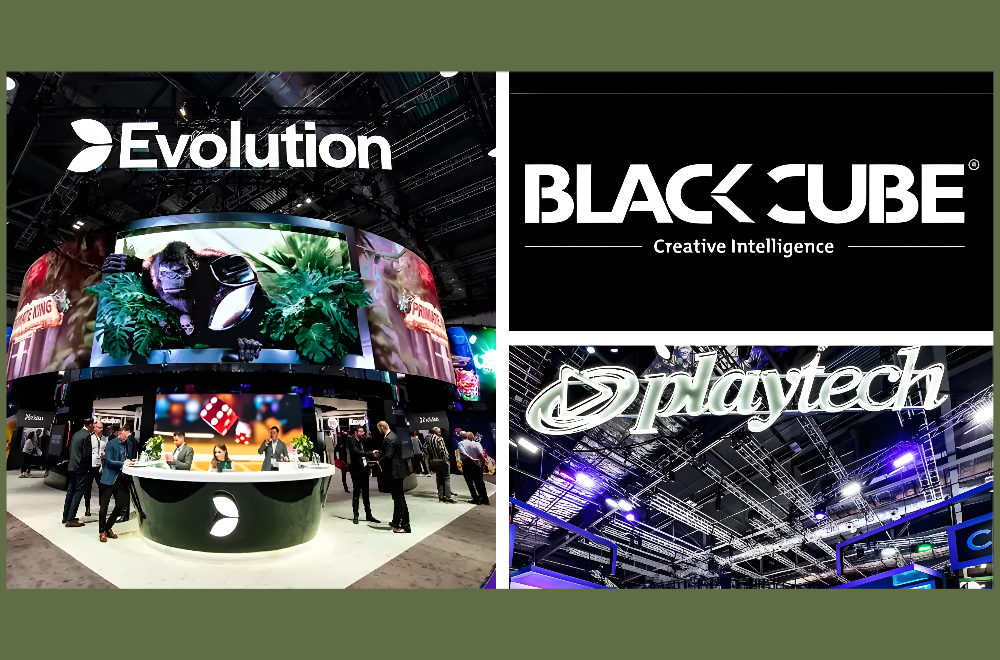
New documents from a New Jersey court have shed unprecedented light on a covert intelligence operation launched against Evolution in 2021. The filings confirm that Playtech agreed to pay private intelligence firm Black Cube up to £500,000 if Evolution Gaming lost one of its gaming licences, with further milestone payments tied to evidence collection, media exposure and regulatory involvement.
Black Cube’s involvement is particularly notable because of the firm’s origins. The company was founded by former Israeli intelligence officers. It is widely reported to employ veterans with backgrounds from agencies such as the Mossad and other national security units. The organisation is known for covert operations that use fabricated identities, staged approaches and secret recordings, methods that are normally seen in geopolitical intelligence work rather than commercial disputes in gaming.
Playtech paid £675,000 for completed milestones, including evidence gathering, media placement and initial regulatory contact. The investigation ultimately led authorities in New Jersey and Pennsylvania to examine Evolution’s activities in restricted markets, but both regulators closed their inquiries without making any findings. Evolution retained all licences.
The material became public through depositions connected to a defamation lawsuit filed by Evolution against Calcagni & Kanefsky LLP, the law firm that presented the original allegations to U.S. regulators. According to testimony from Black Cube’s director Dr. Avi Yanus, Playtech was fully aware of the undercover methods used and continues to support the firm’s legal expenses.
Playtech maintains that the report was commissioned to verify compliance concerns and ensure its understanding of Evolution’s market footprint. Black Cube, however, continues to insist that Evolution has activity in sanctioned jurisdictions even as late as late 2025.

The episode is one of the most serious competitive flashpoints ever documented in the live-dealer industry. Evolution’s dominance in live casino makes it central to almost every regulated market, and any attempt to undermine its licensing position has wide-reaching implications.
Live-dealer providers depend entirely on continuous licence integrity. A suspended or revoked licence can disrupt game streams, studio operations and operator integrations within hours. A financial reward tied directly to licence loss is extraordinary and underscores how impactful such an outcome would have been for Evolution’s rivals.
The filings describe methods far removed from compliance monitoring. False identities, covert surveillance and targeted information gathering form a toolkit associated with state-level intelligence operations. Their use against a major live-casino supplier raises questions about competitive boundaries in an already consolidated sector.
Streaming infrastructure for live casino cannot be segmented by market with the same precision as RNG games. When U.S. authorities reviewed Evolution’s alleged exposure to restricted markets, the scrutiny quickly extended across multiple states. Although no findings were made, the investigation showed how sensitive regulators remain to the global distribution models used by live-dealer studios.
Playtech argues the engagement was intended to verify compliance. However, the payment structure and the intelligence-style tactics complicate that narrative. The contractual bonus tied to licence loss suggests a clear commercial benefit for Playtech if Evolution were weakened.
The testimonies also show that Playtech understood the undercover nature of the work. This includes the creation of false companies, scripted business approaches and the use of covert recordings. These are methods that move the operation well beyond ordinary market research or compliance validation.
Whether regulators will examine Playtech’s conduct directly is uncertain. Yet the reputational impact is already significant. The live-dealer market depends on trust in its major suppliers, and this case demonstrates how aggressively competition may be pursued behind the scenes.
The New Jersey defamation case is ongoing. Additional filings may reveal further information about the coordination between Playtech, Black Cube and the law firm that fronted the original report.
The outcome may influence how future competitive intelligence is conducted in the live-casino market, particularly where regulatory exposure is used as a strategic pressure point.
For operators, the case reinforces how central Evolution and Playtech are to the live-dealer ecosystem. For regulators, it underlines the rising complexity of global supplier competition. And for the sector as a whole, it is one of the most consequential disputes in recent iGaming history.
Your dedicated guide to the world of live casino gaming
Your dedicated guide to the world of live casino gaming. We cover everything from live dealer tables and interactive game shows to trusted operators and new studio releases.